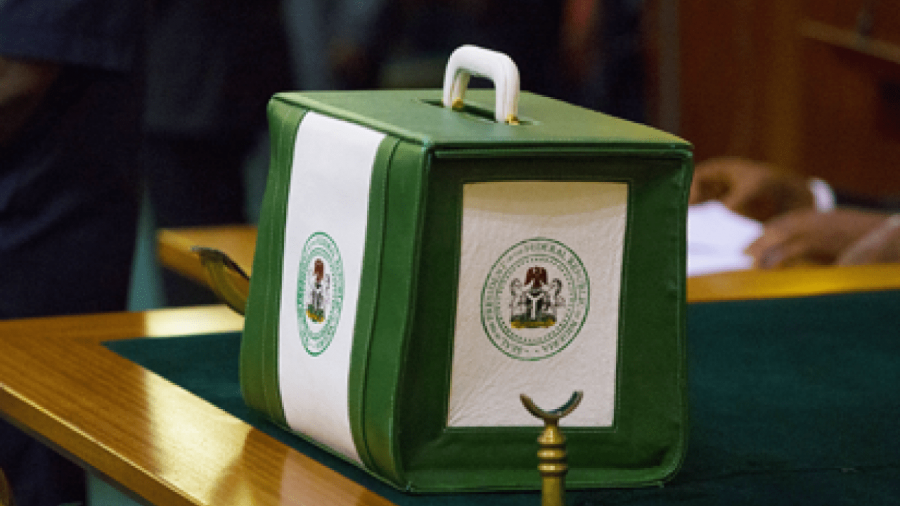
Socio-Economic Rights and Accountability Project (SERAP) has asked President Muhammadu Buhari to probe the reported N39.5 billion duplicated and mysterious projects inserted in the 2021 budget.
This is to know if public funds have been diverted in the guise of implementing the projects and prosecute those allegedly involved including those from the executive and the National Assembly.
The request from SERAP follows a report from BudgiT last week, where they alleged that there are 316 duplicated capital projects worth N139.5 billion in the 2021 budget.
This disclosure is contained in a public statement issued by SERAP on Sunday, May 9, 2021, and can be seen on its website.
SERAP said that the investigation of the alleged duplicated and mysterious projects, which are part of the 2021 appropriation bill of N13.588 trillion, should establish whether public funds have been mismanaged, diverted or stolen in the guise of implementing these projects.
In the letter dated 8th May 2021 and signed by SERAP, Deputy Director, Kolawole Oluwadare said: “The misallocation of public funds for duplicated and mysterious projects has seriously undermined the ability of the indicted MDAs, and the government to ensure respect for Nigerians’ human rights through developing and implementing well-thought-out policies, plans, and budgets.”
The letter from SERAP partly reads, “BudgIT had in a report last week stated that there are 316 duplicated capital projects worth N39.5 billion in the 2021 budget. The duplicated and mysterious projects are contained in the 2021 appropriation bill of N13.588 trillion signed into law in December 2020.”
These damning revelations suggest a grave violation of the public trust, and Nigerians’ rights to education, health, water, sanitation, and clean and satisfactory environment because the indicted MDAs have misallocated public funds at the expense of the people’s access to basic public services, and enjoyment of rights.”
SERAP urges you to ask the heads of the MDAs involved to explain why they allegedly failed to ensure strict compliance with constitutional and international standards of transparency and accountability in the preparation, processes and decisions on their budgets, and to return any misallocated public funds to the public treasury.”
Investigating and prosecuting any allegations of mismanagement, diversion and stealing of public funds budgeted for the 316 duplicated and mysterious projects would allow your government to use the budget to effectively promote Nigerians’ access to essential public goods and services.”
Publishing the ‘implementation status’ of the duplicated and mysterious projects would allow Nigerians to hold their government to account in the spending of public funds. This is particularly true for marginalized and excluded groups, such as people living in poverty, women, children, and persons with disabilities, as the budget has a disproportionate impact on their welfare.”
We would be grateful if the recommended measures are taken within 14 days of the receipt and/or publication of this letter. If we have not heard from you by then, the Incorporated Trustees of SERAP shall take all appropriate legal actions to compel your government to comply with our request in the public interest.”
SERAP also urges you to direct Mrs Zainab Ahmed, Minister of Finance Budget and National Planning to publish full details of current ‘implementation status’ of the duplicated and mysterious projects, and any spending on the projects to date, including the 115 projects inserted in the budget of the Ministry of Health; the 23 projects inserted in the budget of the Ministry of Education, and 10 projects inserted in the budget of the Ministry of Water Resources.
The following ministries are reportedly involved in the duplicated and mysterious projects: Ministry of Health with 115 projects; Ministry of Information and Culture with 40 projects; Ministry of Agriculture and Rural Development with 25 projects; Ministry of Education with 23 projects; Ministry of Transportation with 17 projects; and Ministry of Science and Technology with 17 projects.”
Others are the Ministry of Environment with 13 projects; Ministry of Power with 11 projects; Ministry of Labour and Employment with 11 projects, and Ministry of Water Resources with 10 projects.”
The letter was copied to Mr Malami; Professor Bolaji Owasanoye, Chairman Independent Corrupt Practices and Other Related Offences Commission (ICPC); Mr Abdulrasheed Bawa, Chairman, Economic and Financial Crimes Commission (EFCC); and Mrs Ahmed, the Finance Minister.



